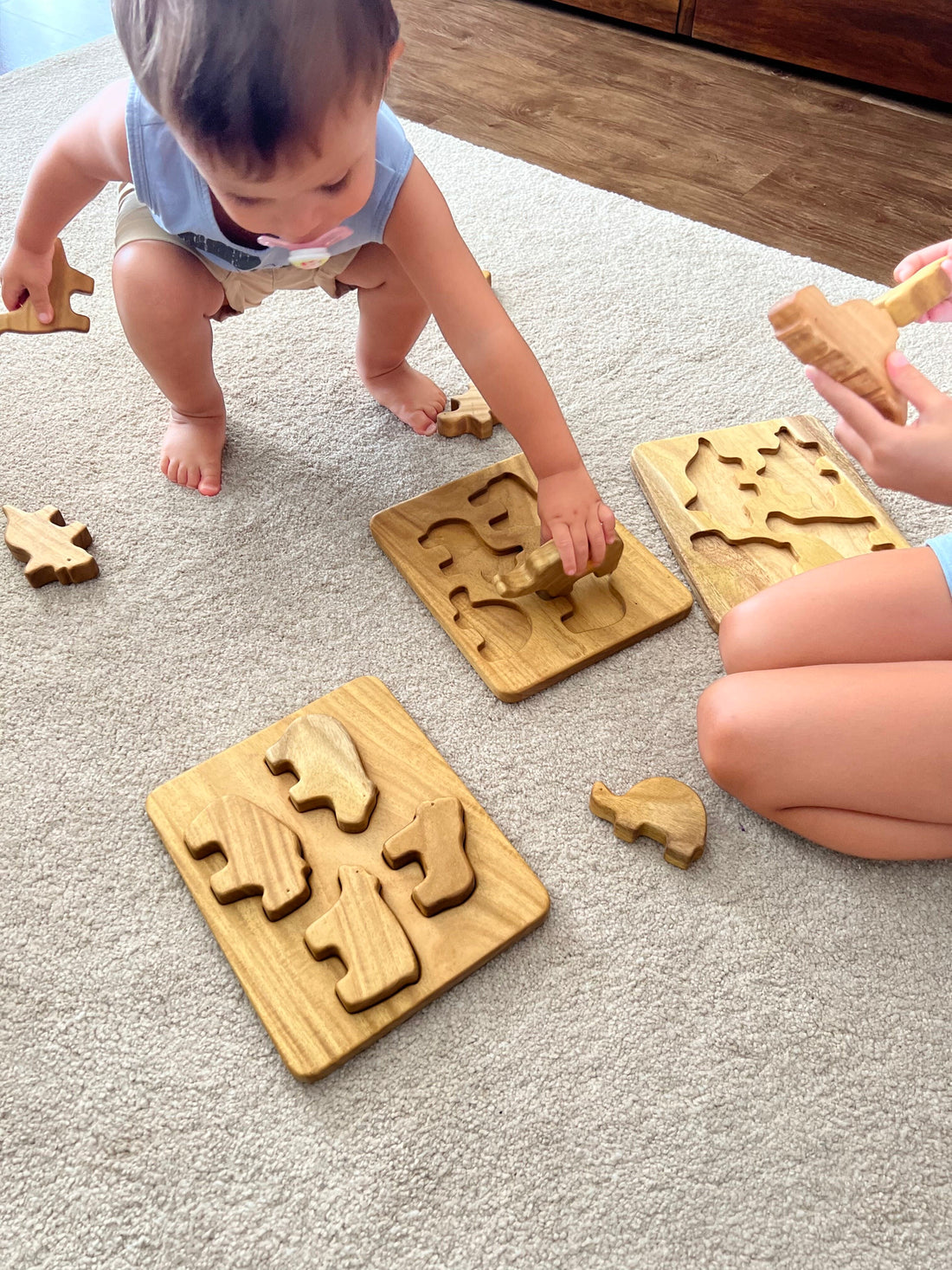The Allure of Natural Materials
Historically, humans have had a natural affinity towards wooden objects. Not only do they exude a timeless charm, but wooden items also harmonize well with the environment. Consequently, when we look at children's toys, there's an undeniable warmth and authenticity that wooden toys offer.
Bridging Generations
Before the advent of plastic toys and electronic gadgets, wooden toys dominated playrooms. And for good reason, too. Grandparents and parents fondly remember their own wooden toys, emphasizing the longevity and durability of such items. In fact, many wooden toys from decades ago remain intact and have been passed down through generations, showcasing their lasting power.
Reasons to Choose Wooden Toys Over Plastic
1. Safety First
Wood, by its nature, doesn't contain harmful chemicals. Moreover, most wooden toys are finished with non-toxic paints and varnishes, ensuring your child's safety. In contrast, numerous plastic toys have been recalled due to their chemical compositions, posing risks to children.
2. Sustainable and Eco-friendly
Wooden toys, particularly those made from sustainably sourced wood, have a significantly lower carbon footprint compared to their plastic counterparts. Furthermore, when wooden toys finally do reach the end of their lifespan, they decompose much more quickly than plastic.
3. Encouraging Imagination
Wooden toys often lack the bells and whistles of electronic or overly specialized toys. As a result, children must employ their imagination more when playing with them. This in turn helps develop cognitive and problem-solving skills, which are crucial for a child's growth.
4. Durability
Ask any parent, and they'll tell you how easily some toys break. Wooden toys, on the other hand, are notably resilient. They're less likely to snap, and, with proper care, can last for many years.
The Multifaceted Benefits of Wooden Play
Emotional and Social Development
Wooden toys, especially those without a fixed function, such as blocks or puzzles, promote cooperative play. As children work together, they learn to share, negotiate, and develop empathy. Consequently, these toys can be instrumental in fostering crucial interpersonal skills.
Motor Skills and Coordination
Furthermore, playing with wooden toys can help improve motor skills. For instance, stacking blocks or piecing together a wooden puzzle requires precision, control, and hand-eye coordination. Over time, as children engage with these toys, their dexterity and control improve.
Sensory Development
Because wooden toys are tactile, they engage a child's sense of touch, enhancing their sensory experiences. The grain, weight, and temperature of the wood are all unique elements that contribute to this experience.
Making the Transition
If you're considering making the switch from plastic to wooden toys, it doesn’t have to be an all-or-nothing approach. Start by introducing a few wooden toys and observe how your child interacts with them. More often than not, their engagement level and imaginative play will convince you of the benefits.
Moreover, when buying wooden toys, ensure they come from reputable manufacturers. Look for certifications that guarantee the wood's sustainable sourcing and confirm the use of non-toxic finishes.
In an age where everything seems to be increasingly digital and disposable, there's a comforting and wholesome quality to wooden toys. They're safe, sustainable, and stimulate a child’s development in myriad ways. As parents and caregivers, it's our responsibility to provide the best for our children. And in the realm of toys, wood stands out as a clear winner.
